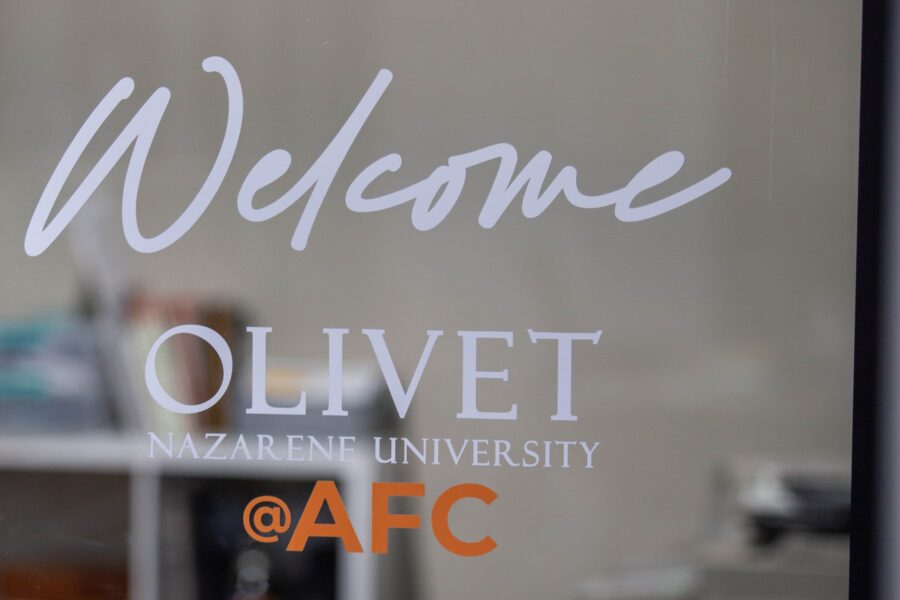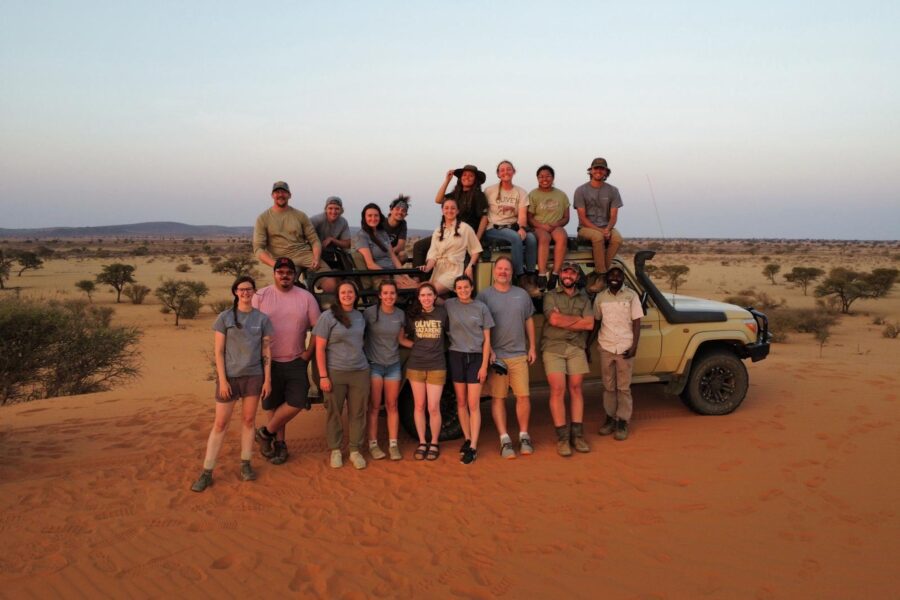
Located near the southern tip of Africa, Namibia is one of the world’s least densely populated countries, with thousands of square miles of desert, savannah and jungle. Containing the planet’s oldest desert and hundreds of miles of Atlantic coastline, Namibia harbors pristine natural beauty and staggering biodiversity. And, as one of the three regular sites for field courses with Olivet Nazarene University’s Department of Biological Sciences, it’s a destination for students to expand their knowledge of ecology and zoology with an unforgettable experience.
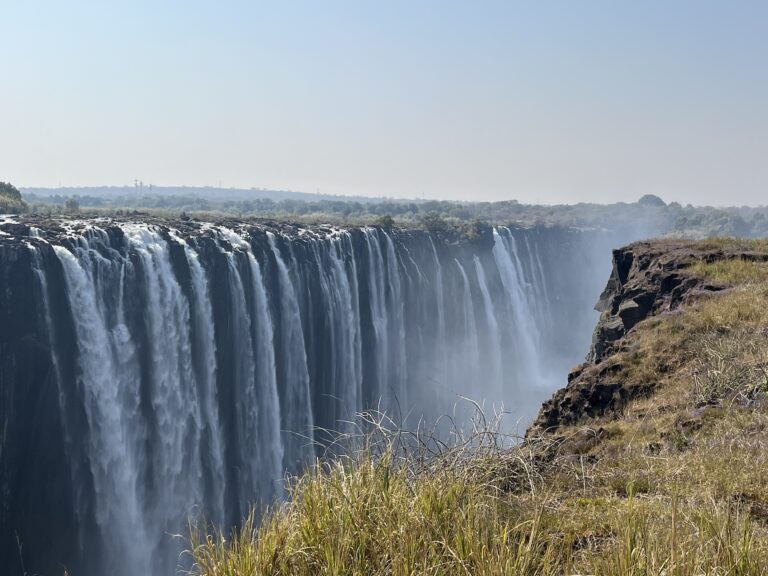 This past August, nine students from Olivet, joined by five from MidAmerica Nazarene University, traveled to Namibia for an educational safari led by Olivet professor Dr. Nick Troendle and Dr. Rion Taylor of MidAmerica. This year’s expedition began at the spectacular Victoria Falls, one of the largest waterfalls in the world, and included visits to the biodiversity hotspot of the Caprivi Strip, the rugged Brandberg Mountain with its herds of desert elephants and ancient rock paintings, the Skeleton Coast of the Namib Desert, and the vast Panorama game reserve near the capital of Windhoek. Along the way, students had close encounters with African wildlife, learned firsthand techniques for sustainable game management and experienced a taste of Namibian culture.
This past August, nine students from Olivet, joined by five from MidAmerica Nazarene University, traveled to Namibia for an educational safari led by Olivet professor Dr. Nick Troendle and Dr. Rion Taylor of MidAmerica. This year’s expedition began at the spectacular Victoria Falls, one of the largest waterfalls in the world, and included visits to the biodiversity hotspot of the Caprivi Strip, the rugged Brandberg Mountain with its herds of desert elephants and ancient rock paintings, the Skeleton Coast of the Namib Desert, and the vast Panorama game reserve near the capital of Windhoek. Along the way, students had close encounters with African wildlife, learned firsthand techniques for sustainable game management and experienced a taste of Namibian culture.
This is the second student group Dr. Troendle and Dr. Taylor have taken to Namibia. This year’s highlight, according to Dr. Troendle, was experiencing it with the students, especially once-in-a-lifetime events like being up close and personal with an elephant and her calf. Getting to know the incredible local guides that accompanied the team was a plus as well, with Dr. Troendle noting that one of theirs this year was a guide for the original Planet Earth series. 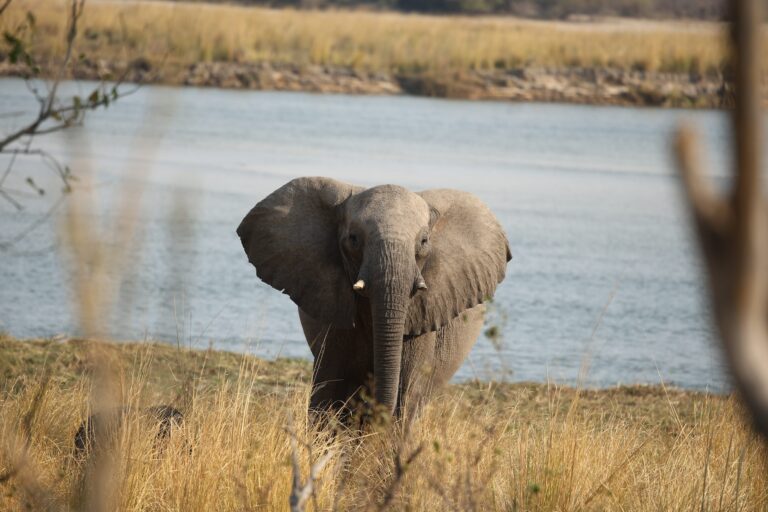
“From the relaxed atmosphere of the supermarkets to the pushy vendors in the touristy areas to the live music at the restaurants to the interactions between the local people and the wild animals to the traditions and attire, this trip was full of new experiences for me,” says Amy Johnson, a junior environmental science major from Round Lake Beach, Illinois.
For students, the Namibia expedition offered significant professional and personal impact.
“I want to work in nature and make a difference to help conserve the environment,” says Amanda Listerman, an Olivet senior from Romeoville, Illinois, who is double-majoring in biology and zoology. “This opened my eyes to conservation being done all the way across the world. There are so many opportunities to work in this field, and the connections I made there could open doors I didn’t know existed.”
Part of this included working with professional outfitter Jamy Trout’s team at the Panorama hunting reserve, home to over 20 species, including giraffe, white rhino, oryx, kudu and eland. There, students saw firsthand sustainable practices for combining tourism, hunting, land preservation and local development.
Besides providing course credit, traveling as part of an Olivet field studies trip offers the chance for experiencing this all in community with other students. Toby Gallion, a sophomore from Petersburgh, Illinois, studying biology on the pre-med track, highlighted this aspect of the adventure.
“While seeing elephants and rhinos from just feet away was pretty incredible, it would have been only half as fun without these friends who, just a week ago. were strangers,” he says.
The spiritual impact of the trip also was a point of emphasis for Toby.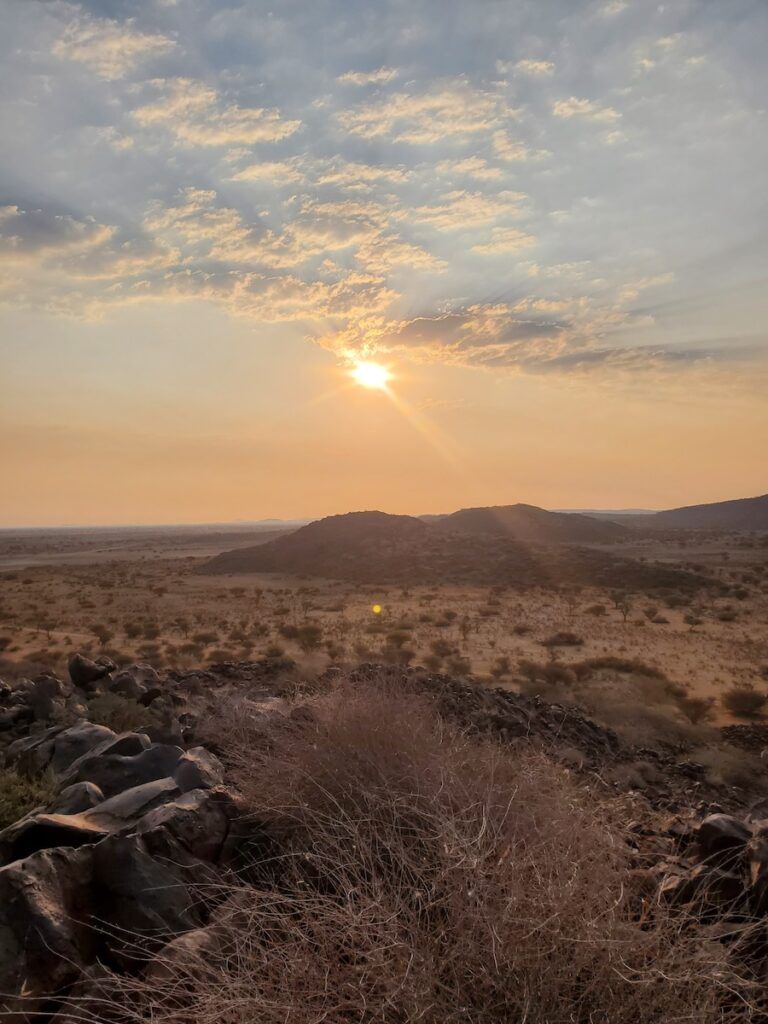
“I ended this trip with a deeper appreciation of the creativity of our God,” he says. “Being fully immersed in nature, far enough away from light pollution to see the Milky Way beam across the sky in bright colors, was just a beautiful reminder of His glory.”
Amanda agrees: “Seeing God’s creation from across the world was amazing! Getting to travel and see the diversity He created was beautiful.”
Along with Costa Rica and Alaska, Namibia is one of the regular field courses offered by the biology department, and it takes place every second summer, giving biology majors a unique opportunity to connect with nature. Toby encourages other students to consider making the journey.
“Really,” he says, “it will be two of the most memorable and exciting weeks of your life.”
For more information about the Department of Biological Sciences, visit www.olivet.edu/biological-sciences.



